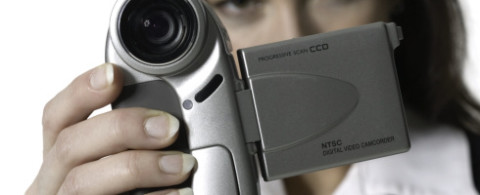Basic Rules For Keeping Your Home Safe
- Lock all doors and windows. Invest in a good lock. Deadbolt
 locks, 1.5 inch minimum, with long bolts that end in a solid door frame makes breaking a door a chore.
locks, 1.5 inch minimum, with long bolts that end in a solid door frame makes breaking a door a chore. - Use your alarm even while you are at home. Display an alarm company sign. Be sure to register your alarm with the City of Dallas here: https://www.dallasalarmpermit.com/
- Police will not answer your alarm unless you have a valid permit.
- Illuminate all entrances.
- Trim bushes and trees that hide doors and windows.
- Don’t hide a key under the mat or flower pot.
- Know your neighbors. Exchange phone numbers, email addresses with each other. You can use this handy document to record their information.
- Think like a burglar. Ask yourself, “What would a burglar find when looking at my house that would be inviting?”
- What’s in the trash? Is the box for the new 60” television prominently displayed on the curb for all to see?
- Burglars don’t like dogs! Even small dogs with big barks make a home a little less attractive to burglars.
- Consider using a safe or fire safe box. In addition to expensive jewelry or jewelry you don’t wear often consider putting important documents such as wills or mortgage papers here for safekeeping.
For more prevention tips, go to www.dallaspolice.net , click on the “Community” tab, then click the “Crime Prevention” tab on the left.
Make A Movie of Your House
 It’s not as crazy as it sounds. What’s in that back closet? Can you remember what’s in the attic? What kind of television is in the den, the bedroom(s), kitchen? Take an hour or so and make a video of your house. No video camera? Just use a regular camera. This is a great means of remembering and proving what articles are in and around your house in case of a fire or burglary. As you are videoing say the model of any television, appliance or other large item. If you have crystal, china, or sterling name the pattern and how many pieces you have of each item. Later, write the serial/model number of those items. Keep the information in a firebox or safe deposit box. Use this handy Property Inventory sheet to document items in your home.
It’s not as crazy as it sounds. What’s in that back closet? Can you remember what’s in the attic? What kind of television is in the den, the bedroom(s), kitchen? Take an hour or so and make a video of your house. No video camera? Just use a regular camera. This is a great means of remembering and proving what articles are in and around your house in case of a fire or burglary. As you are videoing say the model of any television, appliance or other large item. If you have crystal, china, or sterling name the pattern and how many pieces you have of each item. Later, write the serial/model number of those items. Keep the information in a firebox or safe deposit box. Use this handy Property Inventory sheet to document items in your home.
Basic Rules For Keeping Your Car Safe
The most common reasons vehicles are stolen are for “joyrides”, reselling the vehicle for parts and to use the vehicle to commit other crimes.
- Leave nothing in your car – no money, however little, GPS, phone charger, laptop, iPad … nothing! Lock it and close the windows completely.
- Park in the garage if possible.
- Use anti-theft devices such as a steering wheel lock, electronic alarms, ignition kill-switch, VIN etching, or vehicle tracking devises such as Lojack or Onstar that can track a vehicle if it is reported stolen.
- Park in well lit areas.
- Keep information, such as the make, model, year model, license place and VIN (vehicle identification number) easily accessible in the event it is stolen.
Protecting Our Kids
Children have a natural trust in people, especially adults. It’s sometimes hard to teach children to balance this trust with caution. But it’s important that children know common sense rules that can help keep them safe, while building the self-confidence they need to handle emergencies.
- Make sure children know their full name and address (city and state), and their phone number with area code.
- Be sure kids know how to call 9-1-1 or “0” in emergencies. Practice making emergency calls on a make-believe phone.
- Tell children never to accept rides or gifts from someone they or you don’t know well.
- Teach children to go to a store clerk, security guard, or police officer for help if they get lost in a mall or store, or on the street.
- Set rules and guidelines for your child’s internet use, monitoring the child’s use of on-line services.
- Instruct your child to never give out personal information to anyone they talk to on-line.
- Advise your child not to arrange a face-to-face meeting without your permission with anyone he/she meets on-line.
- Always leave a phone number where you can be reached. Post it by the phone, along with numbers for a neighbor and for emergency situations. Have your child check in with you or a neighbor when he or she gets home.
- Work on an escape plan in case of fire or other emergencies. Rehearse the plan with your children.
- Tell your child never to let anyone into your home without your permission, and never let a caller – at the door or on the phone – know that there’s no adult home. Kids can always say their parents are busy and take a message.
A home that looks unoccupied.
- Are there newspapers on the lawn and mail overflowing in the mailbox?
- Are lights always off?
Burglar’s access to home easily hidden?
- Are there high hedges that block windows?
- At night, does a lack of outside lighting make it hard to see what’s going on around the perimeter of the house?
Unlocked doors, windows and garages.
- Opening an unlocked door or window makes a lot less noise than breaking glass.
- Failing to close your garage door, even for a few minutes, allows not only property to be stolen, but tools to use for future burglaries. Ladders, hammers, saws, drills …
Where is the spare Key?
Burglars know all the hiding spots.


